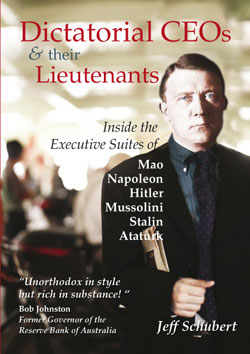Blogs
- Albanese and post-China/US War Dictatorship: Part 8
- Albanese and post-China/US War Dictatorship: Part 7
- Albanese and post-China/US War Dictatorship: Part 6
- Albanese and post-China/US War Dictatorship: Part 5
- Albanese and post-China/US War Dictatorship: Part 4
- Albanese and post-China/US War Dictatorship: Part 3
- Albanese and post-China/US War Dictatorship: PART 2
- Albanese and post-China/US War Dictatorship
- Russian Censorship Comes to Australia via Jews!
- Anne Applebaum writes like Trump talks
- Putin’s Successor if he is killed soon!
- Brittany Higgins false rape earned her $2m
- Lies of Mike Burgess, the Director General of ASIO
- Evan Gershkovitch and Krasikov is Bad Policy
- Beazley, Richardson, Dibb are old men pushing sexy, ignorant group thinks.
- Jewish women Yvonne Engelman and Nina Bassat are Russia-type PR pawns?
- Bad News for Ukraine
- Group Think psychology of AUKUS and Option 2
- Putin says he follows Israeli Gaza example
- Henry Ergas praises Nazi “Will”
- What did we learn from the Tucker Carlson interview of Putin?
- Russian-Ukraine lessons on China
- Me and Colin Rubenstein – an Australian “traitor”?
- Cardinal Pell and David McBride
- Air Chief Marshal Houston & Hitler
- Air Chief Marshal Houston & Stalin
- Albrechtsen plagiarises Goebbels
- Anatoly Chubais
- Assange and Defence
- Blair & Gadhafi
- Blair & Napoleon
- Brooks and Tett on policy psychology
- Cardinal Pell’s God
- Donald Rumsfeld
- Field-Marshal Keitel
- George Bush, Stalin, Mao
- Gillard & Duncan Lewis
- Gillard & Obama
- Gillard & Putin
- Gillard: psychological profile
- Gillard’s personal decision UN vote!
- Goering’s Wisdom
- History of anti-terrorist laws in dictatorships
- Howard & Sinodinos
- James Packer’s lieutenants
- Lateral Thinking
- Lawyer X, Huawei, National Security, Scott Morrison, Chinese in Australia!
- Major-General Cantwell & Matiullah Khan
- Medvedev & Obama
- Medvedev & Putin: “power corrupts”
- Morrison, Binskin and Napoleon
- National Security Myth
- Obama, Jefferson, slaves, murder, Nobel Prizes
- Obama’s Nobel Prize speech
- Paul Lodge (Family Court, Australia)
- Peta Credlin and Abbott, like Hitler-Bormann
- Peter FitzSimmons, George Pell, bias and group think.
- Psychologies of Putin and USA
- Psychology of Secret Courts / Military Tribunals
- Psychology of Supporters of Bush & Saddam
- Putin in 2000
- Putin Personality Cult
- Putin, Gillard, Abbott, Medvedev
- Putin: New Faces and Flaws in the Weave
- Putin’s dangerous reading
- Russia, NATO, Missile Defence
- Tony Abbott
- US Missile Defence
- Wendi (Wendy) Deng
- Why I support WikiLeaks
- Russian Adventures: Money, Sex, Violence & the Law
- Movie Script: Russia to Cambodia
Personal Links
What did we learn from the Tucker Carlson interview of Putin?
Carlson’s interview with Putin has been roundly condemned by various Western commentators and officials for having taken place, for Carlson not asking tougher questions, and for Putin’s answers which were sometimes a distortion of the facts. But most of the condemnation has missed the point that the interview added two pieces of evidence that Russia is not going to be pushed out of Ukraine.
Firstly, I wrote about Putin’s obsession with certain types of history in 2011. Several years later I was told that by someone who had worked closely with Putin that my article had been widely disseminated among various liberal leaning government power players who even then were concerned by this.
The article is here: https://www.jeffschubert.com/putins-dangerous-reading/
What Carlson’s interview did was to demonstrate the extent of Putin’s reading and commitment to his views. This is not a good omen for the war ending any time soon.
Secondly, the ability and behavior of Putin in the interview allowed us to more clearly see a man with more knowledge than many have assumed – for example, his answers to the question on AI – and his ability to interact with other people when he needs or wants to with intelligence and some humor. This should not be underrated.
In my book, “Dictatorial CEOs and their Lieutenants: Inside the Executive Suites of Mao, Napoleon, Hitler, Mussolini, Stalin and Ataturk”, I wrote extensively on “Why Lieutenants Serve” a dictator. The reasons included: “Excitement, ambition, money, prestige, power to boss others”; ‘Love of the country, the company, or the organization”; Lieutenant is nothing without the dictatorial CEO”; Dictatorial CEO shows loyalty to lieutenant”; and Dictatorial CEO makes lieutenant feel personally needed”.
See: https://www.jeffschubert.com/
All of these factors are undoubtedly present in Putin’s team. But I want to focus here on one more factor: “Lieutenant’s respect, admiration and attribution”. Nikita Khrushchev later wrote that Stalin’s ability to “express himself clearly and concisely” was “admired” by “everyone” and “because of it we were proud to work for him”. Marshal Zhukov — who’s contribution to the defeat of Hitler’s armies led to his very prominent statue (on horseback) next to Red Square — noted Stalin’s “ability to formulate an idea concisely, a naturally analytical mind, great erudition and a rare memory”.
Whatever one might think of Putin’s views, the Carlson interview clearly demonstrated Putin’s ability to present them. This will be a factor in the thinking of the main figures about him – both in the Kremlin and other branches of the government – about sticking with Putin as long as possible.


